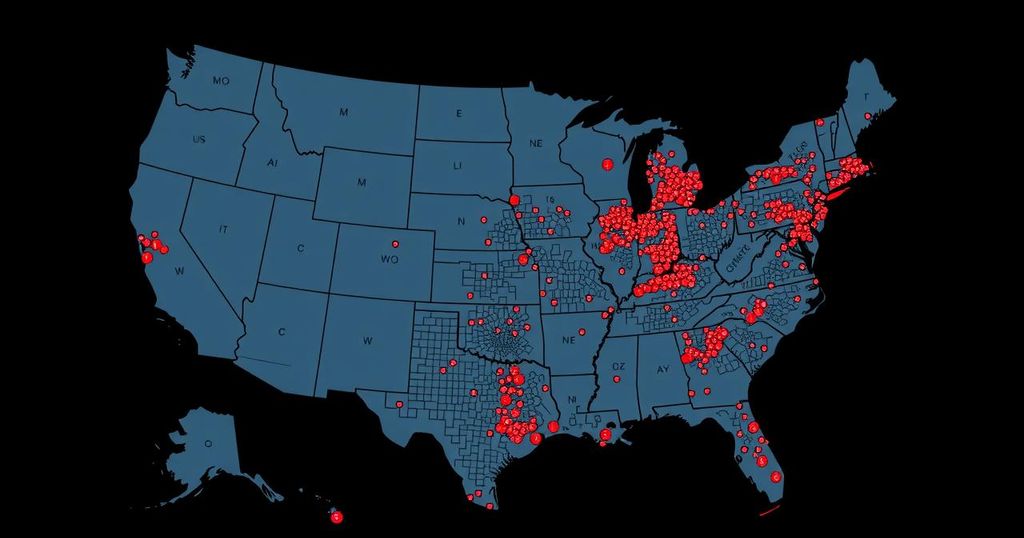In the wake of the 2024 U.S. election, unfounded claims surfaced regarding 20 million missing Democratic votes. However, no credible evidence supports allegations of fraud. Election officials and experts have confirmed the security and integrity of the election process, indicating that variations in voter turnout result from voter decisions rather than manipulative actions.
Social media assertions regarding significant discrepancies in the 2024 U.S. election results, including claims of 20 million Democratic votes disappearing, have emerged following Vice President Kamala Harris’s election defeat. These assertions echo the unfounded allegations made by Republican supporters after Donald Trump’s loss in 2020. Unverified claims suggest a fraudulent election process akin to past incidents in other countries. However, credible electoral authorities have dismissed these allegations as unsubstantiated. Jen Easterly, the Director of the Cybersecurity and Infrastructure Security Agency, emphasized the security of the election process, stating, “Our election infrastructure has never been more secure,” and confirmed that there was no sign of cyber threats impacting election integrity. Furthermore, experts from various reputable organizations, including Common Cause, indicated that they experienced a safe and secure election cycle monitored closely by thousands of volunteers across all states. Ishan Mehta from Common Cause noted that incidents often result from minor technical glitches, not from malicious activities aimed at undermining the election outcomes. As voter turnout statistics continue to be tabulated, experts have clarified that variations in voter participation are common across elections, determined by numerous factors, including candidate approval and competitive race status. Political analyst Paul Gronke pointed out that if discrepancies are noted, it reflects voters’ choices not to participate instead of fraud. Leadership from organizations such as the Center for Election Innovation and Research urges the public to trust the democratic process and highlights the importance of recognizing the fluctuations in electoral engagement. As reflected by the polling data available thus far, the overall voter turnout is deemed to be significant, contrasting with misrepresented claims of diminished Democratic support. In conclusion, the assertion that millions of votes have mysteriously vanished is not supported by factual evidence. Reputable electoral and security agencies unequivocally state that the election was conducted securely, with no indications of widespread fraud. Such claims are dismissed as baseless narratives not reflective of the true electoral landscape.
The topic of election integrity has been a contentious issue in U.S. politics, particularly following high-profile elections. The 2020 presidential election saw numerous allegations of fraud, particularly from supporters of Donald Trump, which fueled ongoing debates about the security of the electoral process. This has continued into the 2024 election cycle, where similar claims from Vice President Kamala Harris’s supporters emerged after her electoral defeat. Understanding the context is vital to comprehending the seriousness of these allegations and the responses from electoral authorities.
This fact-check emphasizes that assertions of disappearing votes in the 2024 U.S. presidential election are without merit. Credible sources, including cybersecurity officials and election advocacy groups, confirm the integrity of the electoral process, reinforcing that fluctuations in voter turnout are commonplace and not indicative of fraud. Lessons from previous elections underscore the importance of verifying claims and fostering trust in democratic institutions.
Original Source: www.aljazeera.com






